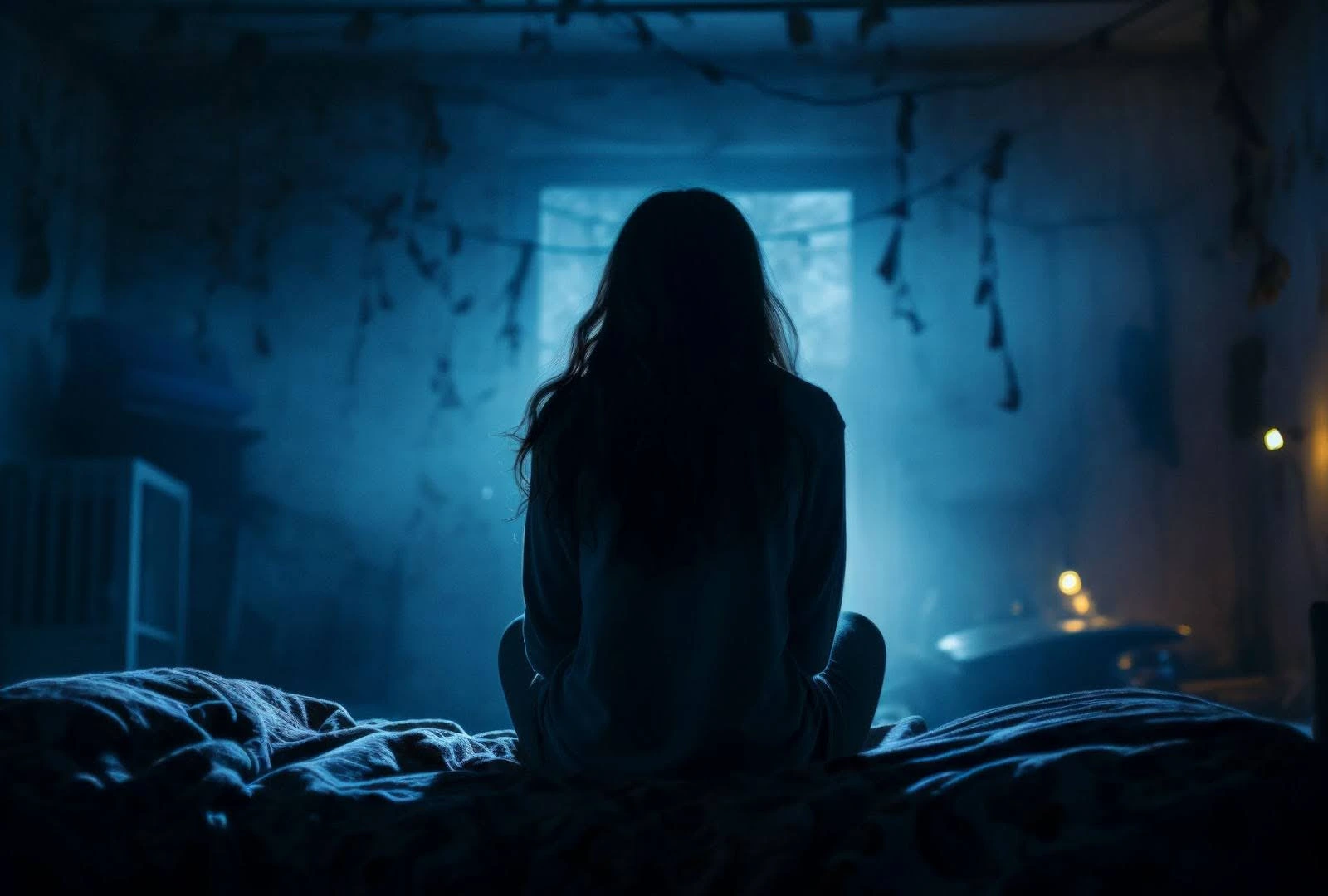Have you ever woken up in a cold sweat, heart racing, after a terrifying dream? Nightmares can feel so real that they linger long after you wake up, leaving you shaken and uneasy. But have you ever wondered, why do we have nightmares?
Nightmares aren’t just random; they often carry deeper meanings tied to our emotions, stress, or unresolved experiences. While children are more commonly associated with bad dreams, adults aren’t immune. In fact, adult nightmares are more common than you might think, and they can have a lasting impact on mental and emotional well-being.
Nightmares are more than just an unpleasant part of sleep—they’re often a window into our subconscious mind. They can highlight hidden fears, unprocessed trauma, or even physical factors like exhaustion. But why do they happen, and how can we manage them?
In this blog, we’ll uncover the reasons behind nightmares, their connection to mental health, and practical ways to address them. From understanding their causes to exploring tools like dream therapy and trauma-focused care, we’ll guide you through the answers to “why I have nightmares” and how to reclaim peaceful sleep.
Ready to dive into the mysteries of your mind? Let’s explore the fascinating world of nightmares and what they’re trying to tell us.
What Are Nightmares?
Nightmares are more than just bad dreams—they’re vivid, distressing experiences that can leave you feeling scared, anxious, or unsettled. But what exactly makes a nightmare different from an ordinary dream?
Nightmares occur during the rapid eye movement (REM) stage of sleep, the phase where most dreaming happens. Unlike regular dreams, nightmares are often more intense, emotionally charged, and vivid. They’re the type of dreams that wake you up, sometimes with your heart pounding and your mind racing.
Nightmares usually involve themes of fear, danger, or loss, and they tend to stick with you after you wake up. Have you ever had a dream so intense that you couldn’t stop thinking about it all day? That’s the lingering power of a nightmare.
While occasional nightmares are common, recurring nightmares can be a sign of deeper emotional or psychological struggles. For some, these unsettling dreams stem from unresolved trauma, while others may experience them due to stress, anxiety, or even certain medications.
Nightmares are also a way for the brain to process emotions and events. Think of them as your mind’s way of working through what’s happening in your life—though it might feel more like a horror movie than a therapy session.
Understanding what causes nightmares is the first step to addressing them, which brings us closer to answering the question: why do we have nightmares?
Why Do We Have Nightmares
So, why do we have nightmares? The answer lies in a mix of biological, psychological, and environmental factors. Let’s explore these causes to understand what’s happening in our minds when bad dreams take over.
1. Biological Causes
During REM sleep, our brain activity spikes, making it a prime time for vivid dreaming. Sometimes, this heightened activity can lead to nightmares. Sleep disorders, like sleep apnea, can also disrupt your sleep cycle and trigger bad dreams. Additionally, overtired bad dreams are common because sleep deprivation intensifies REM activity, which increases the likelihood of nightmares.
2. Psychological Causes
Stress and anxiety are two of the biggest culprits behind nightmares. When your mind is overwhelmed, it can manifest in your dreams as fear or chaos. People with post-traumatic stress disorder (PTSD) are particularly prone to recurring nightmares, which is why addressing trauma is often seen as a key to successful trauma therapy. These dreams act as the brain’s way of trying to process unhealed wounds.
3. Lifestyle Triggers
Ever noticed how late-night snacking can give you strange dreams? Eating close to bedtime can boost metabolism and brain activity, sometimes leading to bad dreams. Substances like alcohol, caffeine, or certain medications can also disrupt your sleep and increase the chances of nightmares. Even seemingly minor habits, like inconsistent sleep schedules, can play a role.
4. Emotional Suppression
Have you ever bottled up emotions during the day, only to have them surface in your dreams? Nightmares are sometimes the mind’s way of processing unresolved feelings. By ignoring emotions, you might unknowingly be inviting bad dreams into your sleep.
5. Trauma and Nightmares
Unprocessed trauma often leads to recurring nightmares. For example, survivors of traumatic events may experience vivid dreams replaying the event, often in exaggerated or symbolic forms. Addressing these through dream therapy or trauma-focused care can help break the cycle.
By understanding the root causes of bad dreams, you can start taking steps to reduce their occurrence. Whether it’s managing stress or addressing sleep hygiene, uncovering what causes bad dreams is the first step toward peaceful rest.
Nightmares and Trauma: The Hidden Link
Have you ever woken up from a nightmare that felt so real it left you shaken? For many, these intense dreams are linked to unresolved trauma. To truly understand why do we have nightmares, we need to explore the connection between trauma and the subconscious mind.
1. Trauma and Recurring Nightmares
Trauma often leaves a lasting imprint on the brain, and one of its most common side effects is recurring nightmares. These dreams may replay the traumatic event or symbolize it through fear and chaos. For example, someone who has experienced an accident might dream about falling or being chased, even if the specifics differ. These nightmares act as the brain’s way of processing the unprocessed.
2. Nightmares as Emotional Signals
Nightmares tied to trauma often highlight feelings of fear, guilt, or helplessness. They’re like emotional alarms, reminding the dreamer of unresolved pain. This is why addressing nightmares can be a key to successful trauma therapy. Therapists often use these dreams as a starting point to explore the client’s deeper emotions.
3. How Dream Therapy Helps
Dream therapy, a specialized form of psychotherapy, uses dreams to uncover and process emotional wounds. By discussing and interpreting nightmares in a safe environment, therapists can help clients understand their significance. For instance, a recurring nightmare might reveal feelings of vulnerability that a client hasn’t consciously acknowledged.
4. PTSD and Nightmares
For individuals with PTSD, nightmares are particularly common. These dreams often bring back vivid memories of the traumatic event, making it hard for the person to heal. Trauma-focused therapies like EMDR (Eye Movement Desensitization and Reprocessing) or cognitive-behavioral therapy for nightmares (CBT-I) can help reframe these dreams and reduce their intensity over time.
5. Symbolism in Nightmares
Trauma-related nightmares often use symbolism to communicate what the mind is struggling to process. For example, a burning house might symbolize feelings of loss or instability. Understanding these symbols can provide valuable insights into healing.
Nightmares aren’t just scary—they’re clues to deeper emotional truths. By addressing the trauma behind them, whether through dream therapy or other approaches, individuals can transform their bad dreams into stepping stones toward healing.
Nightmares in Adults: Common Triggers
While nightmares are often associated with children, adults experience them too—and sometimes, they’re even more intense. Understanding why do we have nightmares as adults requires a closer look at the unique challenges that adulthood brings.
1. Work Stress and Responsibilities
Balancing a career, finances, and personal life can feel overwhelming, and these pressures often follow us into our dreams. Stress from deadlines, difficult bosses, or work-related anxiety can manifest as bad dreams. Ever dreamt about missing an important meeting or failing at a task? That’s your brain processing stress.
2. Family and Relationship Tensions
Conflicts with loved ones, whether it’s a heated argument or unresolved issues, can also trigger nightmares. These dreams may reflect feelings of guilt, anger, or fear of loss. For example, a dream about a loved one leaving could stem from real-life insecurities.
3. Overthinking and Overwork
Adults who tend to overthink are more prone to nightmares. The constant cycle of worry can affect your sleep quality and contribute to overtired bad dreams. When the mind doesn’t get a chance to relax, it brings those racing thoughts into the dream world.
4. Health Conditions and Medications
Certain health conditions, like anxiety or depression, can increase the frequency of nightmares. Additionally, medications like antidepressants or beta-blockers may alter brain chemistry and lead to vivid or disturbing dreams.
5. Unresolved Trauma
Trauma doesn’t disappear with age. Many adults carry unresolved pain, which may surface as recurring nightmares. This is why addressing the root cause of trauma through therapies like dream therapy is crucial.
Nightmares in adults are often tied to the unique stressors of life, from work challenges to personal struggles. Identifying the triggers and addressing them can help break the cycle of bad dreams and lead to more restful nights.

How to Manage and Reduce Nightmares
Waking up from a nightmare can leave you feeling unsettled, but there’s good news: you can take steps to reduce their frequency and intensity. Let’s explore how to calm the storm of bad dreams and discover why do we have nightmares in the first place.
1. Create a Relaxing Bedtime Routine
Nightmares often thrive on stress. Setting a calming pre-sleep routine can help your mind wind down. Try activities like reading, meditating, or listening to soothing music. Avoid stimulants like caffeine and electronics close to bedtime, as they can increase the likelihood of overtired bad dreams.
2. Address Emotional Stress
Stress and unresolved emotions are common triggers for nightmares. Journaling before bed can help you process your thoughts, leaving less emotional baggage for your brain to work through while you sleep. If deeper issues are at play, consider therapy to explore these emotions.
3. Improve Sleep Hygiene
Good sleep habits can make a big difference. Stick to a consistent sleep schedule, keep your bedroom cool and comfortable, and limit late-night snacks. Healthy sleep patterns reduce disruptions in your REM cycle, which is when nightmares typically occur.
4. Use Dream Therapy
If nightmares persist, dream therapy might be a helpful solution. This approach encourages you to recall and reframe your nightmares in a controlled setting, reducing their emotional impact over time. Therapists can guide you through techniques to interpret your dreams and address underlying triggers.
5. Practice Relaxation Techniques
Techniques like deep breathing, progressive muscle relaxation, and mindfulness can help calm your mind and body. They’re especially useful if you wake up from a nightmare and have trouble falling back asleep.
Explore Cognitive Behavioral Therapy for Nightmares (CBT-I)
CBT-I is a proven method to reduce nightmares by challenging the thoughts and patterns that fuel them. This structured therapy can help you replace fear-driven dream patterns with neutral or positive imagery.
By addressing the root causes of what causes bad dreams, you can create a path to peaceful sleep. Small, consistent changes can turn your nights from restless to restful.

When to Seek Professional Help
Occasional nightmares are normal, but when they start disrupting your life, it may be time to seek professional help. Understanding why do we have nightmares is only part of the solution—sometimes, deeper intervention is needed to break free from their grip.
Signs You Need Help
- Recurring Nightmares: If you’re experiencing the same nightmare repeatedly, it might indicate unresolved trauma or deep-seated anxiety.
- Impact on Daily Life: Nightmares that leave you feeling drained, anxious, or unable to concentrate during the day can interfere with your overall well-being.
- Fear of Sleeping: Avoiding sleep out of fear of bad dreams can lead to exhaustion and even more intense nightmares.
Therapies for Nightmares
- Dream Therapy: This method helps you unpack and reinterpret your nightmares in a therapeutic setting. By exploring the symbols and emotions behind your dreams, you can address their root causes.
- CBT for Insomnia (CBT-I): A structured approach to tackle the thought patterns that fuel nightmares, CBT-I has shown great success in reducing their frequency and emotional impact.
- Trauma-Focused Therapy: For individuals whose nightmares are tied to past trauma, trauma therapy is often the key to successful trauma therapy. Techniques like EMDR (Eye Movement Desensitization and Reprocessing) or exposure therapy can help reframe traumatic memories.
Don’t Ignore the Signs
Bad dreams are more than just a nighttime nuisance—they can signal deeper issues. Seeking professional guidance is an empowering step toward understanding what causes bad dreams and taking control of your mental health.
Wrapping Up: Why Do We Have Nightmares
Nightmares are more than just unsettling dreams—they’re reflections of our stress, emotions, and sometimes, unresolved trauma. By understanding why do we have nightmares, we can address their causes and work toward better sleep and mental well-being.
From managing stress and improving sleep hygiene to seeking therapies like dream therapy or trauma-focused approaches, there are many tools available to reclaim peaceful nights. Nightmares may feel overwhelming, but they’re also an opportunity to uncover hidden truths and heal.
Remember, a restful night is within your reach. Start exploring the causes of your nightmares and take steps toward a healthier, happier you.

